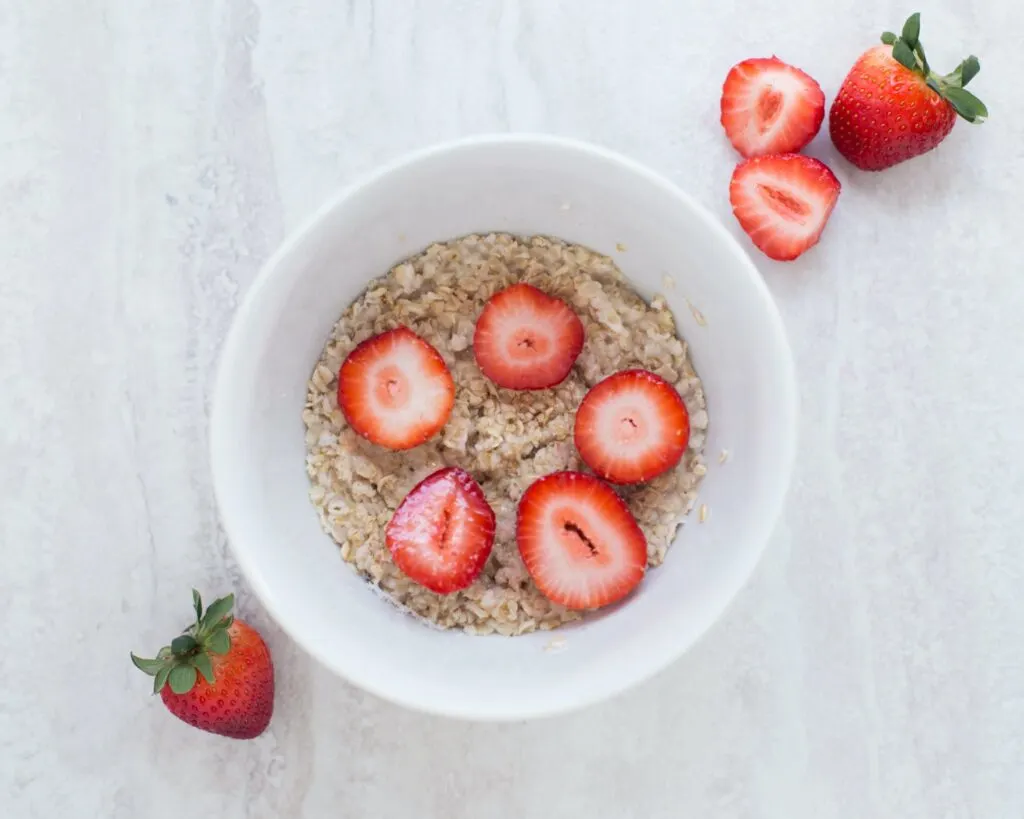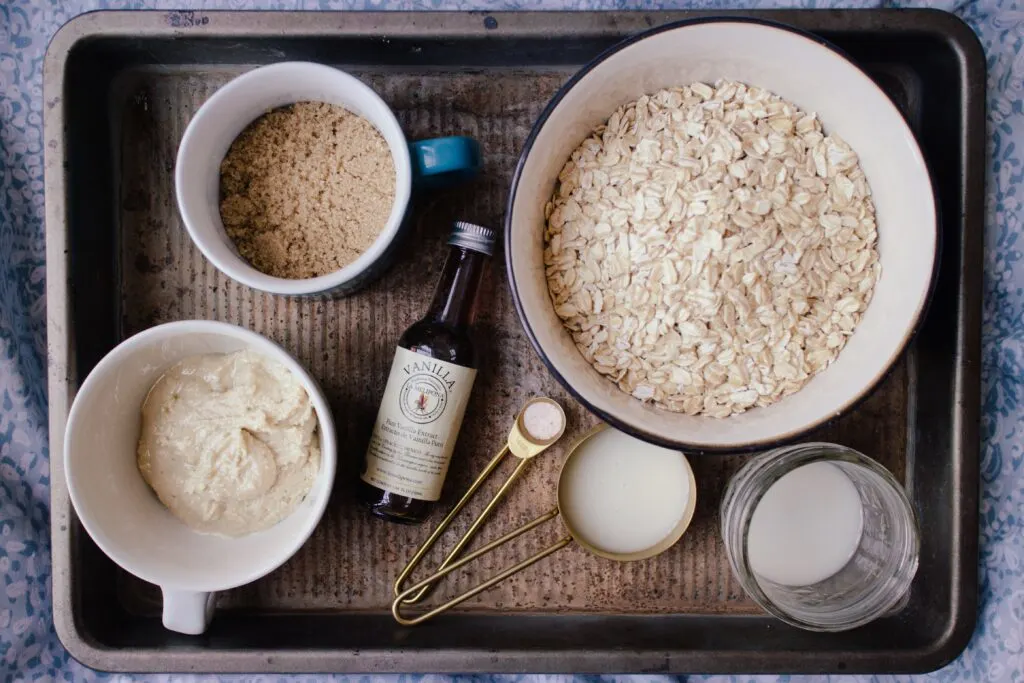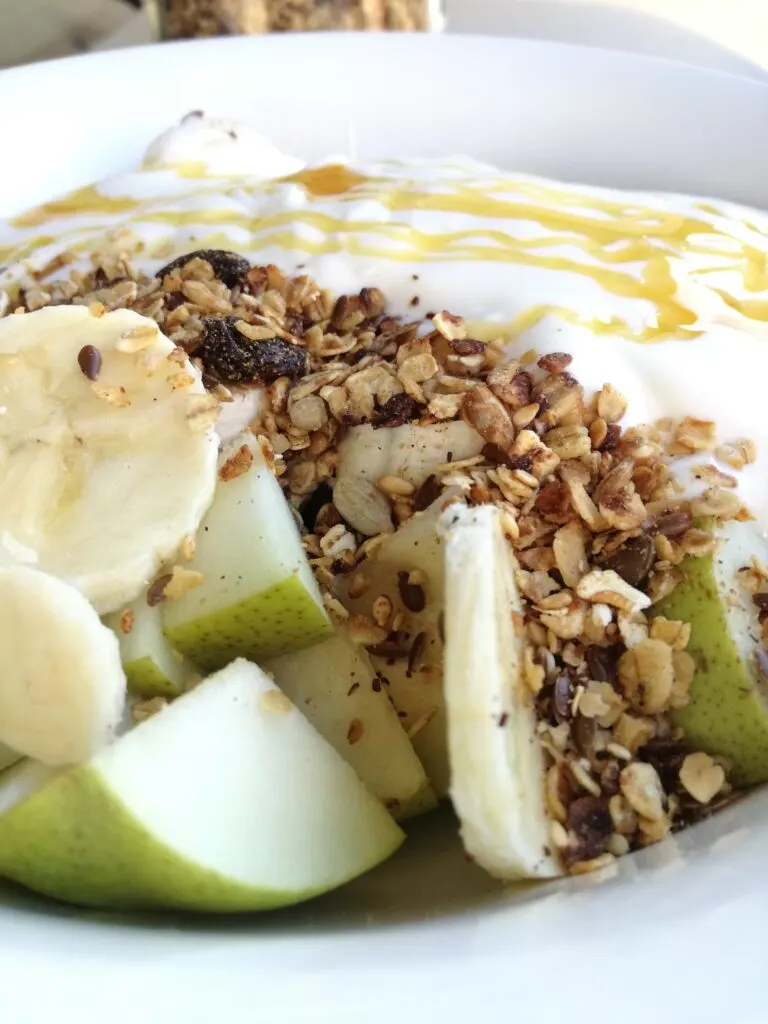Oats are about to get a serious upgrade! Move over, instant packets and overnight oats, because fermented oats are here to rock your gut and your taste buds! Learn how to ferment oats and the benefits of doing so.

What are Fermented Oats?
Fermented oats are simply oats that have undergone a natural transformation process using beneficial bacteria or yeast. This process breaks down complex carbohydrates, making them easier to digest and absorb. It also boosts the nutritional profile, increasing the bioavailability of vitamins, minerals, and antioxidants.
Why Go Fermented?
The benefits of fermented oats go far beyond just a tastier breakfast. Here are just a few reasons to join the fermentation revolution:
Enhanced Digestion
Fermentation breaks down gluten and phytates, naturally occurring anti-nutrients in oats that can hinder digestion. This makes fermented oats gentler on your stomach and promotes better nutrient absorption.
Probiotic Powerhouse
The fermentation process introduces beneficial bacteria, like lactobacilli and bifidobacteria, which act as probiotics. These gut-friendly microbes support digestive health, boost immunity, and may even improve mood and cognitive function.
Nutritional Boost
Fermentation increases the levels of essential vitamins and minerals like iron, zinc, and B vitamins. It also enhances the antioxidant activity of oats, protecting your cells from free radical damage.
Flavorful Fun
Fermented oats develop a tangy, slightly sweet flavor that adds a new dimension to your oatmeal routine. Experiment with different starter cultures and spices to create unique and delicious breakfast bowls.

How to Ferment Oats:
The good news is, that fermenting oats is surprisingly easy! You can use various starter cultures, including kefir, yogurt, buttermilk, sourdough starter, or even kombucha. Soak your oats in water with your chosen starter for 12-24 hours, depending on the desired level of tanginess. Then, cook them as usual or enjoy them raw for a probiotic punch.
Fermented Oats Recipe Ideas
Tropical Sunrise Bowl: Top your fermented oats with fresh mango, pineapple, and coconut flakes for a taste of paradise.
Savory Spiced Oats: Add a dollop of Greek yogurt, roasted vegetables, and your favorite herbs for a satisfying and nutritious lunch. Try this Savory Oatmeal recipe.
Chocolate Cherry Delight: Stir in some melted dark chocolate, chopped cherries, and a sprinkle of chia seeds for a decadent and healthy dessert.
Ready to Take the Plunge?
Fermented oats are a simple yet powerful way to elevate your breakfast game and support your overall health. So, ditch the boring instant oats and embrace the world of fermentation! Your gut (and your taste buds) will thank you.
Additional Tips:
Use organic oats for optimal nutrition and flavor.
Experiment with different starter cultures to find your favorite taste.
Get creative with toppings! Fresh fruit, nuts, seeds, and spices are all great additions to your fermented oatmeal.
Have fun and enjoy the process! Fermenting is a rewarding way to connect with your food and nourish your body in a delicious way.

Frequently Asked Questions (FAQs)
Yes, it’s generally okay to eat fermented oats. Fermentation can actually enhance the nutritional value of oats by increasing the availability of certain nutrients and improving digestibility. However, as with any fermented food, it’s important to ensure that the fermentation process has been done correctly to avoid harmful bacteria growth.
Fermented oats are commonly referred to as “sour oats” or “fermented oatmeal.” This process involves soaking oats in a liquid, often water or a dairy substitute, and allowing them to ferment due to the action of beneficial bacteria. This fermentation process breaks down some of the starches and phytic acid in the oats, making them easier to digest and enhancing their nutritional value. Fermented oats are popular in various cuisines and can be used similarly to regular oats in recipes.
The duration of fermenting oats typically ranges from 12 to 24 hours. However, the exact time can vary depending on factors like the temperature, the type of oats used, and your taste preferences. Warmer temperatures generally speed up fermentation, while cooler temperatures slow it down. Taste testing during fermentation can help you find the right balance for your preference.
Overnight oats do not ferment in the traditional sense since fermentation typically involves the conversion of carbohydrates into alcohol or organic acids by microorganisms under anaerobic conditions. However, when you soak oats overnight, especially with yogurt or other dairy products, there can be a very mild form of fermentation due to natural bacteria present in these foods. The primary change in overnight oats is the softening of the oats as they absorb the liquid, making them more digestible and easier to eat.
You May Also Like
- Overnight Oats with Oat Milk
- Overnight Oats with Chia Seeds
- Almond Milk Overnight Oats
- Overnight Oats with Protein Powder
- Overnight Oats with Water
If you enjoy this post about fermented oats, please leave a comment!
